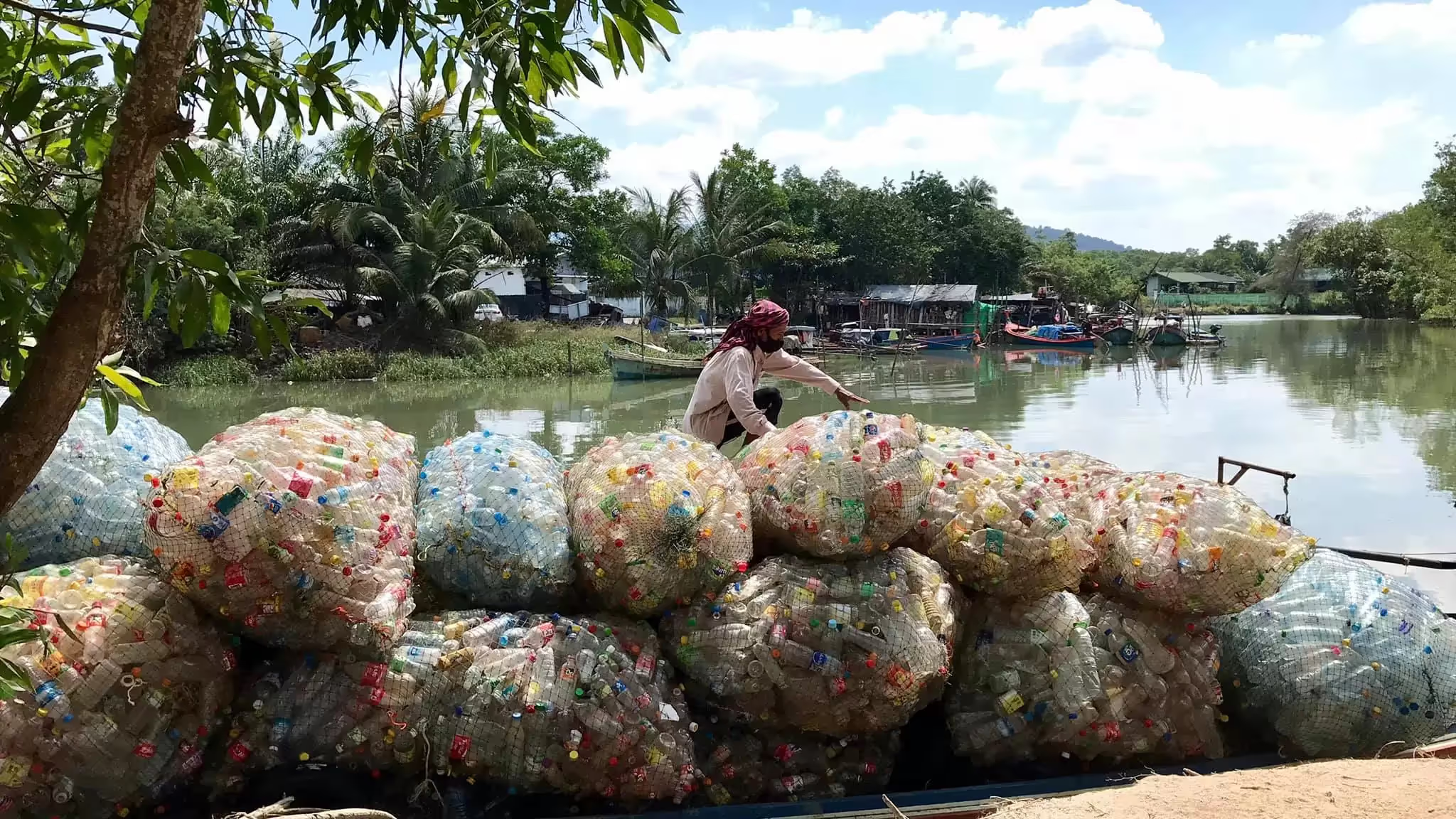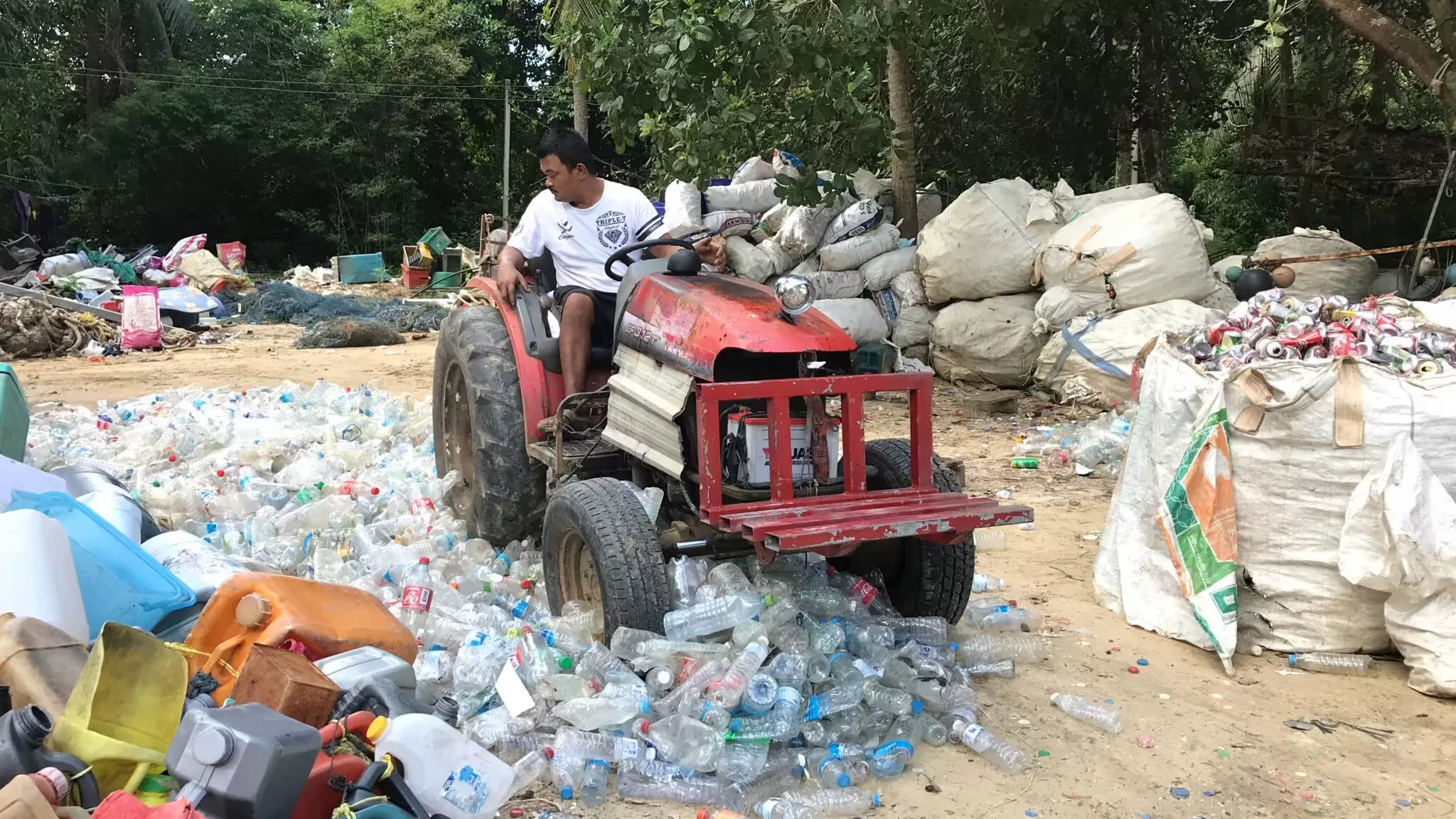Table of content
Plastic has been a hot topic for years. From turtle-choking straws to the infamous Garbage Patch in the Pacific Ocean, we’re constantly reminded of the environmental toll of plastic pollution. But beyond the headlines, what can we actually do about it?
As companies, we contribute significantly to annual plastic waste. One of the most effective and accessible ways to address this is through plastic collection initiatives.
Why Is Plastic Collection Important?
Plastic presents a wide range of environmental challenges. Its production relies on finite resources like fossil fuels, contributes to climate change through greenhouse gas emissions, and pollutes land and ocean ecosystems.
Each year, hundreds of millions of metric tons of greenhouse gases are released through plastic production, and this number continues to climb.
Plastic collection and recycling play a crucial role in reducing this impact. By recovering and reusing existing plastic, we lower the demand for virgin plastic production, which in turn reduces fossil fuel use and emissions. It’s a simple yet powerful way to reduce environmental harm and slow the cycle of pollution.
Benefits of Having a Plastic Collection Plan
Creating a plastic collection plan isn’t just good for the planet, it’s smart business. Whether you build your own strategy or model it after existing frameworks, here’s what a well-designed plan can do:
Reduce Ocean Plastic Pollution
At Second Life, we work with companies to reduce their plastic footprint by implementing collection projects in Southeast Asia, including Thailand, a country facing some of the highest rates of ocean plastic leakage in the world.
By supporting collection in critical areas, companies directly contribute to keeping plastic out of the ocean and protecting marine ecosystems.
Earn Plastic Credits
Plastic credits are a market-based solution that reward companies for supporting the collection or recycling of plastic waste beyond their own supply chains.
By funding recovery efforts that wouldn’t happen otherwise, businesses can earn credits treducing their plastic footprint, while also supporting local communities and waste workers.
As both legislation and public pressure grow around plastic pollution, proactive efforts like these are becoming essential to corporate sustainability strategies.
Free Up Valuable Landfill Space
Plastic takes hundreds of years to decompose, and it occupies a significant share of landfill space. When plastic is collected and recycled instead of dumped, it reduces the pressure on already overburdened landfill systems.
Plastic collection plans help identify and scale recycling opportunities — giving waste a second life in the economy, rather than letting it sit buried for generations.
Conserve Natural Resources and Energy
Producing virgin plastic requires large amounts of raw materials and energy. Recycling plastic reduces the need for new resource extraction and uses significantly less energy than creating plastic from scratch.
By collecting and recycling more plastic, companies can contribute to a more circular economy, where resources are used more efficiently and sustainably.
Strengthen Your Corporate Image
Plastic collection also makes for a strong and credible CSR (Corporate Social Responsibility) initiative. It signals to customers, partners, and stakeholders that your company is taking measurable action to reduce its environmental footprint.
As consumer awareness grows, brands that demonstrate genuine environmental commitment can build trust, loyalty, and long-term value.
Conclusion
The environmental impact of plastic production is real, but it’s not irreversible.
Businesses have the opportunity (and responsibility) to take action by reducing plastic waste, conserving natural resources, and helping build a more sustainable world.
At Second Life, we support companies in taking real, measurable steps to offset their plastic footprint through high-impact recovery projects that also generate social value.






